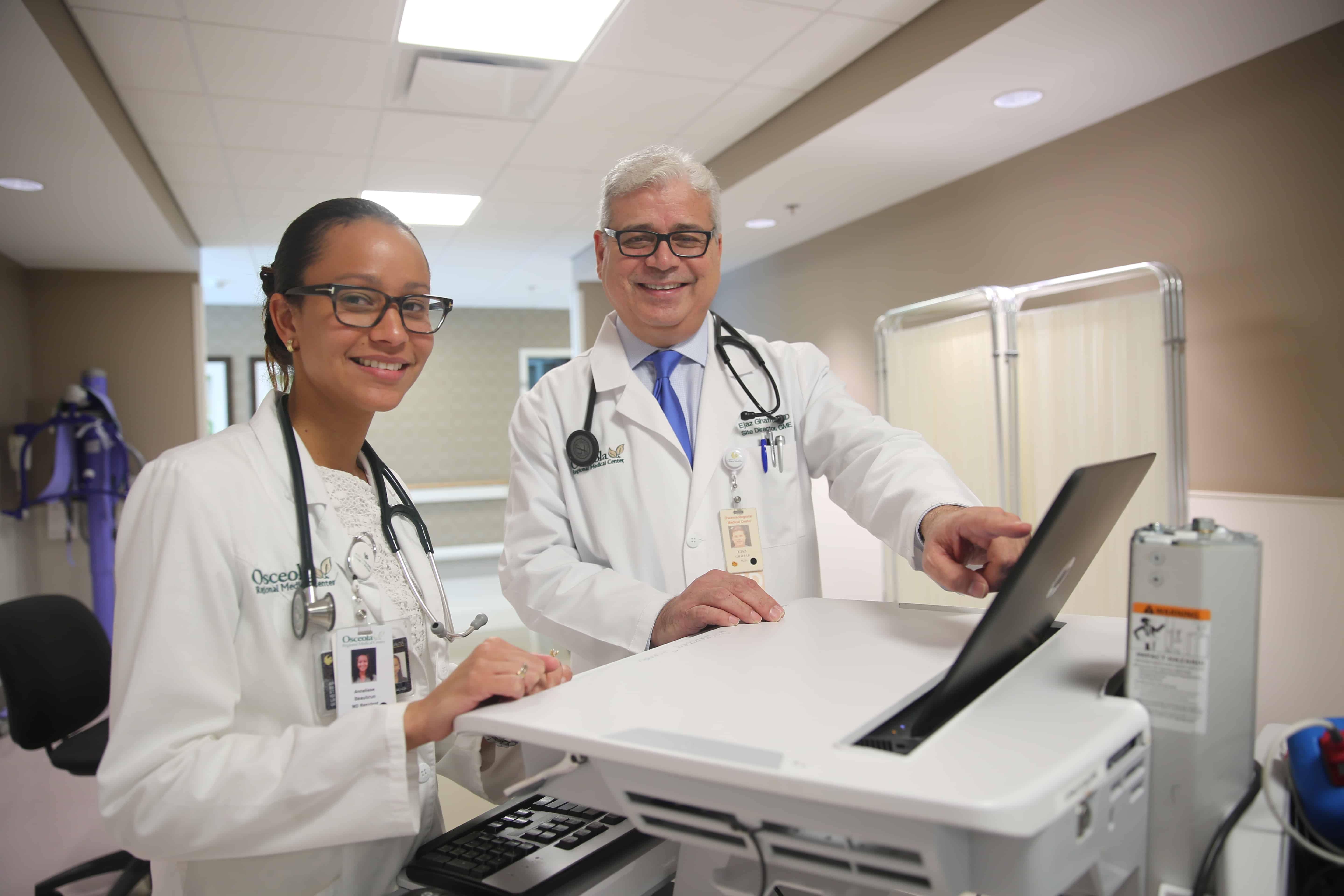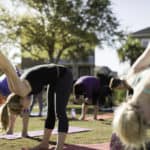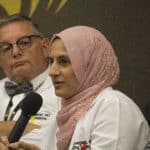 Dr. “Mo” said goodbye to his patients at the Orlando Veterans Affairs (VA) Medical Center in Lake Nona and reflected on what they had taught him. Patience. Trust. The power of simple, compassionate words. As a resident in the UCF College of Medicine’s first residency program, Dr. Almatmed Abdelsalam, known to patients and colleagues as Mo, had cared for patients at the Orlando VA and Osceola Regional Medical Center. In June, he was among the first 16 physicians to graduate from our inaugural residency, which has helped inspire new graduate medical education programs across the state.
Dr. “Mo” said goodbye to his patients at the Orlando Veterans Affairs (VA) Medical Center in Lake Nona and reflected on what they had taught him. Patience. Trust. The power of simple, compassionate words. As a resident in the UCF College of Medicine’s first residency program, Dr. Almatmed Abdelsalam, known to patients and colleagues as Mo, had cared for patients at the Orlando VA and Osceola Regional Medical Center. In June, he was among the first 16 physicians to graduate from our inaugural residency, which has helped inspire new graduate medical education programs across the state.
That residency, in internal medicine, began in 2014 in partnership with Osceola Regional and the Orlando VA. Its success led to a consortium between the College of Medicine and Hospital Corporation of America’s North Florida Division that is expected to add 600+ new residency slots to the state by 2020. In the past two years alone, we’ve added 14 residency programs and one fellowship in Orlando, Ocala and Gainesville. We now have about 250 physicians in training and additional new programs are planned.
Residency programs are part of the promise we made to this community. If we have more residencies, we’ll have more trained doctors. We’ll become a net importer of medical talent instead of a net exporter. That’s because in order to practice, medical school graduates must complete residency training in a specific specialty for three to seven years. Florida’s number of residency programs has not kept pace with its growing population and increasing number of medical schools. In fact, we are 41st of the 50 states in residents per capita. That contributes to the state’s physician shortage and means many of our graduates leave Florida for their training.
Increasing residency programs can help ease that shortage because most residents set up practices where they train. That’s true for this year’s internal medicine graduates. Of the 16, nine are staying in Central Florida. Two will practice in Gainesville. Three are going onto fellowships in specialties such as hematology/oncology and sleep medicine. Three are going out of state to practice.

These first groups of physicians were pioneers whose efforts are helping to improve the health of our community. Dr. Abdelsalam recently reflected on being part of a new program and about his patients over the last three years – especially the veterans he’d helped with PTSD and depression on top of chronic conditions such as diabetes, obesity and heart disease. Many were initially tough to reach emotionally, which made caring for their complex medical issues even more challenging. But he had earned their trust by learning about their lives. He’d asked about their kids, their hobbies. He’d called and texted them. He’d become buddies with beloved Pearl, a veteran’s service dog who accompanied her human to every clinic visit.
“Saying goodbye, you realize you built up a relationship, a trust the past three years,” he said. “It wasn’t always easy. But you can’t help someone take care of their diabetes if you don’t know and understand them. These moments together are what make you.”
After graduation, Dr. Abdelsalam is going to Macon, Ga., a medically underserved area, to become a hospitalist, an internal medicine specialist who cares for patients who are hospitalized with acute illnesses or complications from chronic diseases. He said the specialty allows him to treat and learn from multiple areas of medicine while still developing relationships with patients and their families. He hopes to return to the Orlando area in the future, perhaps to care for patients while teaching at the College of Medicine. With more residency programs, our community will have more physicians just like these.

